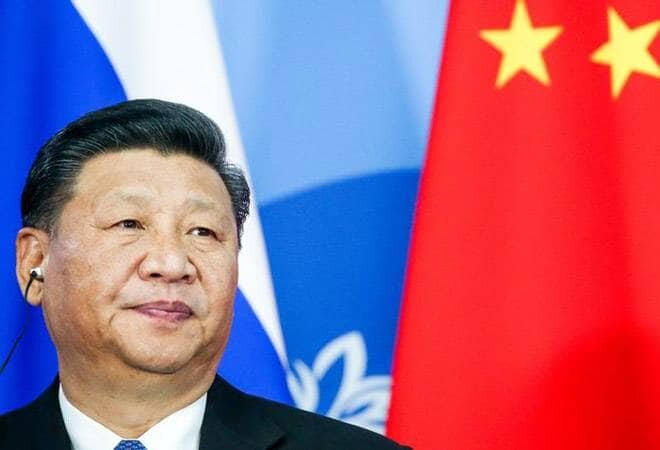RF spotlights higher-quality opening-up

The second Belt and Road Forum (BRF) for International Cooperation concluded in Beijing over the weekend, perhaps with results that went beyond the expectations of many observers. President Xi Jinping's speech at the opening ceremony echoed both the yearnings among many countries along the route of the Belt and Road Initiative (BRI) for "two-way traffic" in BRI dealings as well as the continuation of free trade.
These include the announcement of further measures in deepening and broadening China's reform and opening-up process, including widening market access for foreign investors and strengthening intellectual property (IP) protection, with China's huge domestic markets pledging to procure even more foreign goods. This is of course in stark contrast to US administration's frequent threats of tariff hikes to deter foreign goods.
The vast China market is a most coveted one for countries with economies steeped in export of commodities and manufactured products. So Xi's announcement of further opening-up of the Chinese economy for foreign goods and services is a most welcome move and is likely to uplift the economic performance of these countries. Similarly, the tightening of IP protection would spur further foreign direct investment (FDI) into China by the more advanced BRI countries, thereby realizing an "open" participation by all Belt and Road nations in each other's economies.
Since the BRI was first proposed by Xi six years ago in Kazakhstan, the regions along the routes have experienced tremendous, sometimes fundamental developmental transformation. Among the five BRI principles is policy coordination, which saw China signing up memoranda of cooperation or strategic partnerships not only among close neighbors but also stretching as far as Italy and Switzerland in Europe. In line with the principle of facility linkage, many infrastructural projects with Chinese involvement have been sprouting all along the Belt and Road.
That was perhaps a well-intentioned move by the Chinese side, based on its own hugely successful developmental experience. The country has a saying, first build the road, prosperity will come along. Indeed, the many high-speed rail lines and highways linking cities big and small in China, for example, have spurred hitherto unseen growth almost wherever they reach. The entrepreneurial Chinese would make use of the reach of such advanced infrastructure to develop previously remote regions in order to better their own livelihoods and the community's in the process.
And seeing the somewhat dated infrastructure of its many developing neighbors, China was perhaps overenthusiastic in trying to assist them to improve their physical linkages, not the least with China, so that some other BRI principles, such as trade facilitation, capital fluidity and ultimately people-to-people bonds could be achieved more efficiently. That was perhaps the main theme of the first BRI summit two years ago, summing up some of the mainly infrastructural projects that have been carried out and announcing new ones, with financial packages in the form of funds and loans to back up. Many of the regions along the BRI do need such infrastructural upgrades in order to unleash their developmental potential thus far hemmed in by a lack of basic amenities, such as access to electricity and yes, roads.
Fast forward two years, and both the global socioeconomic and geopolitical scenes have somewhat shifted. Socioeconomically, although new wealth has been created even despite the world economy being in the doldrums, it has often not been fairly and effectively spread across all social strata in many regions, not the least those along the BRI. The sustainability of such wealth creation is then called into question. Geopolitically, the US which remains the world's largest economy, has increasingly and unabashedly practiced isolationism, ditching the concept and practice of free trade which it first advocated for the longest period in favor of rabid protectionism disguised as "America First," setting up an example for the rise of jingoism around the world.
It is against this somewhat convoluted backdrop that the second BRI summit was unveiled. There was a distinct shift in emphasis from "hardware" development to perhaps what can be called "software" promotion. Xi in his speech stressed the importance of quality development that is open, clean and green. This renewed emphasis on refining the BRI projects is expected to be welcomed across the participating regions, as openness would mean increased participation by all stakeholders, both local and foreign, and hopefully from all strata in a society, in implementation. "Cleanliness" here refers to joint efforts in combating corruption and abuses which have plagued many developing countries, not the least some along the BRI. But most importantly, the BRI projects should be "green," being minimally environmentally invasive, with optimal use of renewable energy and sustainable resources. Many countries are starting essentially from scratch in their developmental journey, and they must do it in tune with the aspirations of their people and the preservation of the environment, which is precious.
And there was also a subtle, renewed emphasis on further building up of people-to-people bonds in this summit. And that, ultimately, would perhaps be the ultimate achievement of the BRI, so that a community of shared destiny and peace and prosperity would come to fruition.
(Source: Global Times )
Leave a Comment